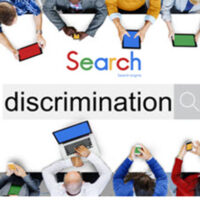LGBTQ Employees Are Protected in the Workplace

As an employer or an employee, you may be aware of the federal laws that protect workers from different kinds of discrimination or different treatment on the basis of race, nationality and sex. We interpret “sex” as meaning gender—that is, that women cannot be treated differently at work than men, and that is true. But does “sex” also mean sexuality? In other words, do federal discrimination and equality in the workplace laws extend to protect members of the LGBTQ community?
Supreme Court Weighs In
Until recently, it was accepted that women were protected, but the definition of “gender” or “sex” had not included LGBTQ members. It was simply not illegal in many places to pay someone who was LGBTQ less money, or fail to hire them, or fail to promote them, among other employment decisions (unless you lived in a state where there were specific LGBTQ protections, outside of federal law-though very few states have these protections).
Just last year, this question—one that seemingly should have been determined a long time ago—was decided by the United States Supreme Court. The Court found that the usage of the word “sex” in federal employment discrimination laws did extend to protect members of the LGBTQ community.
Although it was unclear whether the lawmakers who drafted the employment disrcimination laws intended to protect the LGBTQ community, the court found no reason to exclude that community from the definition of “sex” or “gender” under the laws. The Court found that there would be no reason why someone’s sexuality should have any bearing on employment decisions, or why sexuality should open someone up and expose them to what would be legal workplace discrimination.
What the Decision Means
The decision means that an employer cannot make any kind of adverse hiring decision, or punish a worker in any way, just on the basis of the worker’s sexuality. Of course, employers can punish any worker of any sex, race or gender, for reasons unrelated to their background, and many employers will try to fabricate “real” reasons for making a negative employment decision, to cover up discrimination (this is often called “pretext”).
It often takes a lawsuit and discovery of information, to see whether a worker was fired, demoted, punished, or turned away from employment, for a real reason, or just because of discrimination. Evidence showing discrimination can be obvious, like comments made by supervisors, or a pattern and practice of failing to promote, or punishing, a gender or nationality.
In other cases, discrimination is much more hidden. In those cases, an employee who has been discriminated against may need to show that the employer’s reasons for the negative employment decision are simply pretext.
Call Pike & Lustig, LLP, at 561-291-8298 to help you with your employment discrimination case, if you feel you are being singled out or discriminated at work–or if you are an employer being sued for discrimination. Our West Palm Beach business litigation attorneys can help answer your questions.
Resource:
cnn.com/2020/06/15/politics/supreme-court-expanding-gay-rights/index.html
https://www.turnpikelaw.com/what-is-a-trade-secret-and-how-do-you-protect-it/



